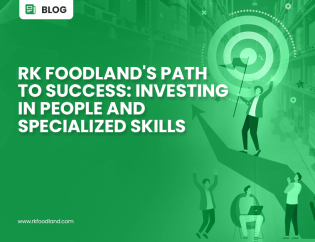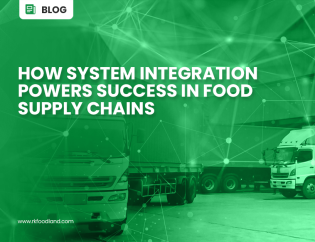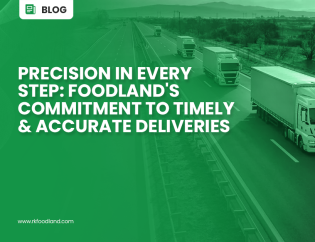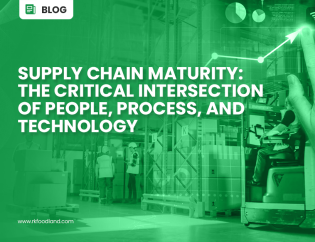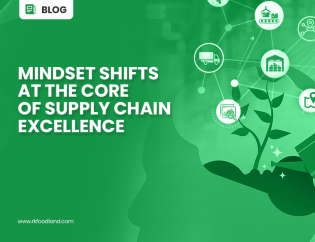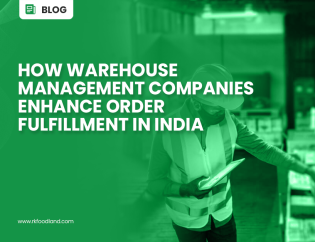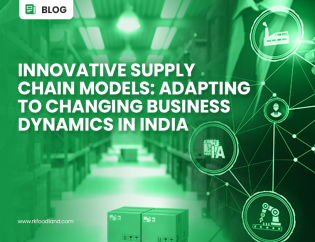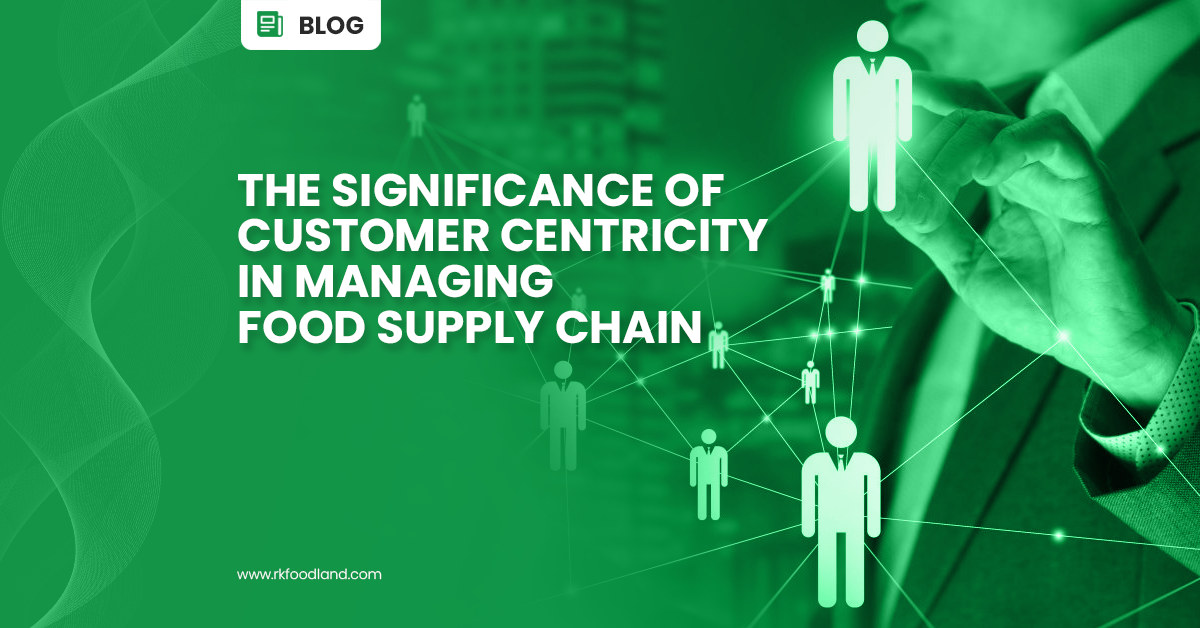
[Avg. Read Time < 5 mins]
Food industry is a complex and dynamic ecosystem where efficiency, adaptability, and resilience are crucial for success. Within this ecosystem, supply chain management plays a pivotal role, underpinning the operations of food service and FMCG businesses. But what truly separates a good supply chain partner from a great one? It is Customer Centricity. 50% of supply chain professionals state that developing a customer centric supply chain is their top priority. With the objective of understanding this concept and its implications for food-related businesses, the blog takes a deep dive into the subject. We’ll unpack the importance of creating synergies, and embodying customer centricity in fostering long-term partnerships and facilitating mutual growth. Why can a customer-centric approach serve as the secret ingredient for a successful, efficient, and resilient supply chain in the food industry?
Putting Customers First – The Importance of Customer Centricity
The effectiveness of the supply chain is a critical success factor for food businesses, highlighting the importance of long-term partnerships with supply chain management companies. Unfortunately, many such partnerships turn out to be short-lived or ineffective. The common factor behind these shortcomings often lies in a lack of alignment between the supply chain service provider and the food business’s specific needs, goals, and aspirations. According to a report, merely 10% of businesses are effectively developing resilient, growth-promoting supply chains. This leaves many companies vulnerable to potential disruptions. This is where the concept of customer centricity steps in as a game-changer. Customer centricity involves more than just a superficial understanding of the client’s business. It demands a deep comprehension of their needs, an ability to tailor solutions that drive efficiencies, and institutional intelligence to anticipate future needs proactively.
1.Understanding client’s needs is the first critical component of customer centricity. This includes:
- Comprehending production requirements.
- Understanding quality standards.
- Addressing regulatory compliance needs.
- Considering client’s growth aspirations.
2. Tailoring solutions is the next crucial step, requiring an innovative approach to address each client’s unique challenges. This involves:
- Designing effective strategies to optimize operations.
- Implementing cost-control measures.
- Improving overall efficiency in the supply chain.
3. Proactive anticipation of future needs calls for staying abreast of market trends and technological advancements. This allows to:
- Identify potential obstacles and opportunities well in advance.
- Enable clients to stay competitive and adjust their operations as needed.
4. Lastly, adaptability and flexibility are integral to a customer-centric approach. The volatile nature of the food industry means that changes are inevitable, including:
- Evolving consumer preferences.
- New regulatory norms.
- Market fluctuations.
The supply chain partner must demonstrate agility to adapt and align with these changes swiftly. In summary, customer centricity can foster robust, long-term supply chain partnerships by putting the customer’s needs at the core of all decisions and strategies. It’s not just about reacting to the client’s present requirements but about preparing them for future success.
Creating Synergy – Aligning Capabilities and Capacities for Customers’ Growth Aspirations
Developing an agile and adaptable supply chain infrastructure forms the bedrock of an effective, customer-centric approach. The food industry is subject to rapid fluctuations in market dynamics and client demands. For food businesses, this necessitates the ability to adapt and respond swiftly to these changes, ensuring minimal disruption and maximum efficiency. Staying ahead of the curve requires a deep understanding of the market landscape and clients’ strategic aspirations. This knowledge is gained not only through continuous market research and analysis of industry trends, but also by fostering open dialogue within the ecosystem. Actively engaging within the ecosystem helps gain insights into their strategic objectives, enabling both; the food business and us to align our strategies and solutions more accurately to those objectives.
Collaboration forms the cornerstone of this synergistic approach. It’s not about providing a service; it’s about co-creating value and achieving shared objectives. Our commitment to a collaborative mindset goes beyond being a mere service provider; instead, we actively integrate ourselves into our clients’ journey, supporting and driving their growth aspirations as dedicated partners. Finally, the pursuit of customer centricity necessitates continual investment in infrastructure, technology, and talent development. Building robust supply chain infrastructures, adopting cutting-edge technologies, and nurturing talent can significantly enhance operational efficiency and effectiveness. These investments enable us to offer superior service, driving value for our clients and fostering enduring partnerships. In essence, the synergy created by aligning capabilities and capacities with our clients’ growth aspirations allows us to become indispensable partners in their clients’ success story, paving the way for long-term growth and mutual benefit.
Exemplifying Customer Centricity – RK Foodland’s Commitment to Client Success
For over 35 years, RK Foodland has been at the forefront of delivering customer-centric supply chain solutions to the food industry. Our commitment to the success of our clients is the driving force behind our approach, leading us to actively engage with them to comprehend their unique requirements, challenges, and strategic goals. By closely monitoring market trends and industry developments, and by staying abreast of emerging challenges, we’re able to maintain a proactive stance, anticipating our clients’ future needs. We consistently incorporate customer feedback into our improvement process, using it to optimize our services. This ongoing interaction allows us to customize solutions effectively and adjust as needed, emphasizing our commitment to providing truly customer-centric services. At RK Foodland, we recognize the role of technology as a key enabler of efficiency and service excellence. We leverage cutting-edge tools and technologies to improve operational efficiency, provide real-time visibility, and ensure consistent delivery of exceptional service.
In conclusion, customer centricity for us at RK Foodland isn’t just a strategy, but a commitment to prioritize clients in all we do. As strategic partners, we aid food businesses in overcoming market challenges and planning for future growth. We live this commitment daily, collaboratively creating value with our clients and contributing to their successful journey. If you’re looking to optimize your supply chain and seeking a partner who can proactively contribute to your growth story, we invite you to connect with our experts.
Let’s explore how our customer-centric solutions can drive your business forward, together.
Related Content | Foodland’s Resources
Customer Centric Supply Chain: What is it, why is it important now?
5 Characteristics of a Customer Centric Supply Chain
Four Steps to Become a Customer-Centric Supply Chain


